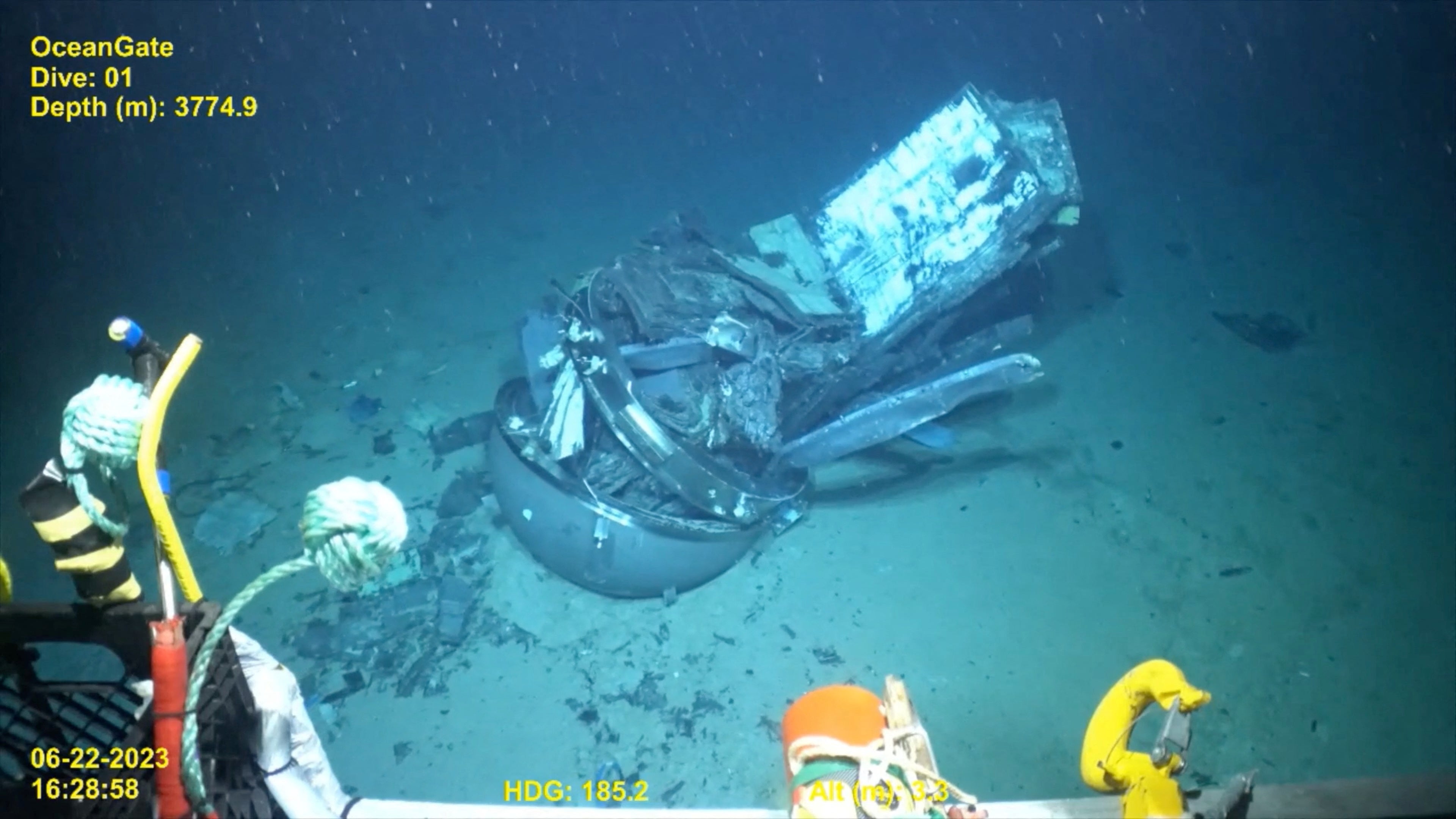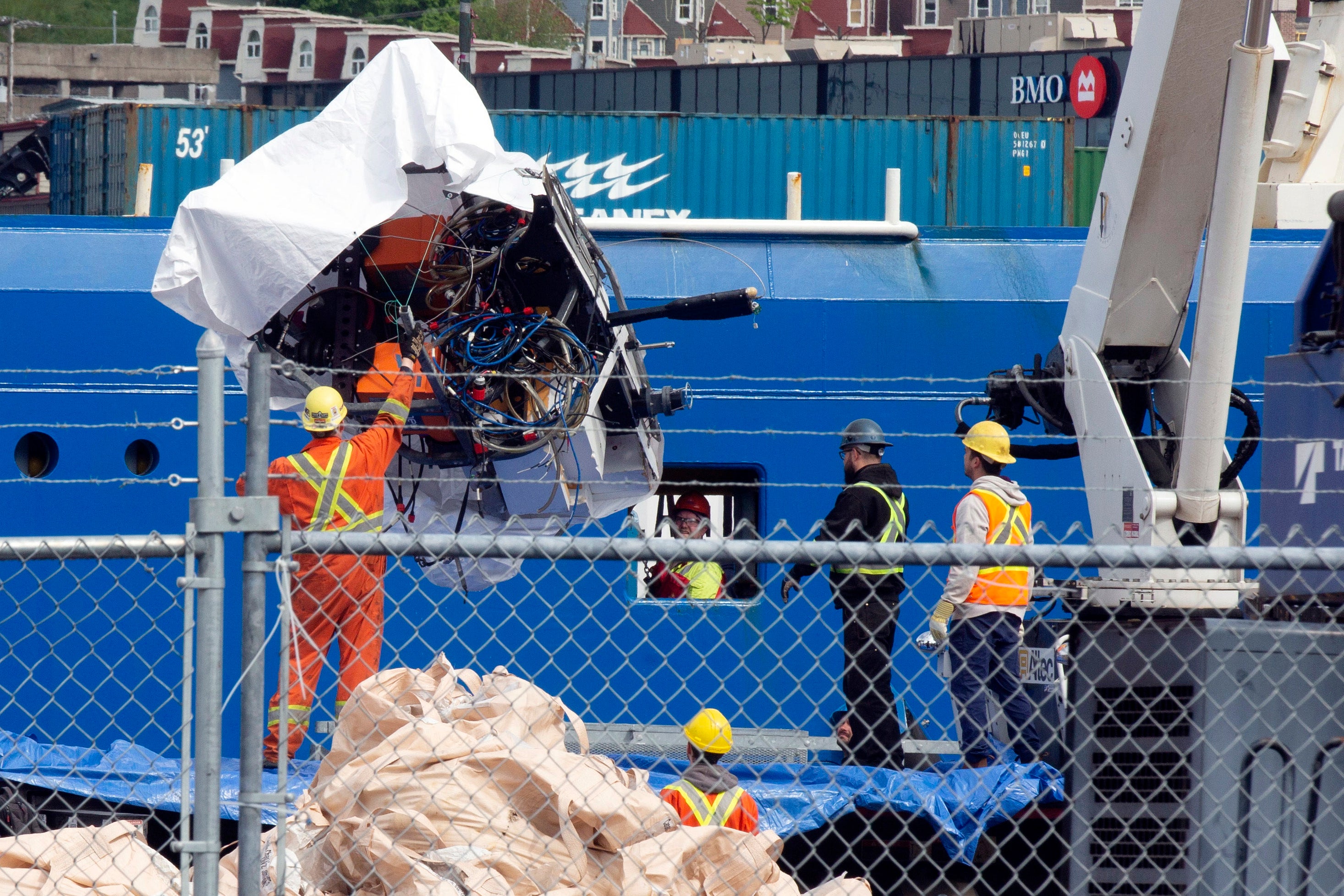OceanGate CEO Stockton Rush, who died on the deep-sea submersible alongside four others, ignored critical data leading up to the vessel’s implosion in June 2023, according to a new report from the U.S. Coast Guard.
The 335-page report released Tuesday revealed that OceanGate had “critically flawed” safety practices and a toxic workplace culture — and that Rush’s “negligence” contributed to the deaths of those on board.
It also found that the Titan’s disappearance — and eventual implosion — was “preventable.”
“This marine casualty and the loss of five lives was preventable,” said Jason Neubauer, the Titan Marine Board of Investigation Chair, while calling for greater oversight. “The two-year investigation has identified multiple contributing factors that led to this tragedy, providing valuable lessons learned to prevent a future occurrence.”
Rush, who acted as the Titan sub’s pilot, was singled out as the driving force that led to the catastrophe.
The OceanGate boss “exhibited negligence that contributed to the deaths of four individuals,” the report found. It also “identified evidence of a potential criminal offense.” Had Rush survived, the Coast Guard would have recommended that the Department of Justice consider pursuing a separate criminal investigation.

How the company was run allowed Rush to “completely ignore” critical data and other safety measures ahead of the doomed expedition to the Titanic’s ruins.
“The lack of both third-party oversight and experienced OceanGate employees on staff during their 2023 Titan operations allowed OceanGate’s Chief Executive Officer to completely ignore vital inspections, data analyses, and preventative maintenance procedures, culminating in a catastrophic event,” the report says.
The report detailed eight primary causal factors that led to the sub’s implosion. They are:
- OceanGate’s design and testing processes didn’t address “the fundamental engineering principles” needed for operations in “an inherently hazardous environment.”
- OceanGate did not understand the expected cycle life of the sub’s hull.
- The company relied too heavily on a real-time monitoring system of the sub’s condition, but failed to meaningfully examine the data the system provided.
- OceanGate continued to use the Titan following incidents that “compromised the integrity of the hull and other critical components.”
- The Titan’s carbon fibre construction led to issues that weakened its overall structural integrity.
- The company failed to investigate the sub after “mishaps that negatively impacted its hull and components during dives” before the implosion.
- OceanGate’s “toxic workplace environment,” which utilized firings or senior staff members and the looming threat of being fired to keep employees from sharing safety concerns.
- The company’s failure to conduct “preventative maintenance” on the sub’s hull or protect it from elements during the off-season ahead of the doomed 2023 expedition.
However, it also confirmed the overarching cause of the implosion was a “loss of structural integrity,” which led to the “instantaneous” death of all five people on board.
Rush, 61, and the four other passengers were trekking out to see the wreckage of the Titanic. The other four passengers killed in the implosion were Pakistani businessman Shahzada Dawood, 48; his son, Suleman Dawood, 19; British businessman Hamish Harding, 58; and French explorer and Titanic expert Paul-Henri Nargeolet, 77.

The report also noted that OceanGate failed to investigate a whistleblower’s complaint in 2018. Had there been an earlier investigation, the report suggests, OceanGate could have either met regulatory requirements or changed its plans for the Titanic expedition, the report found.

This is a breaking news story, check back for updates…
